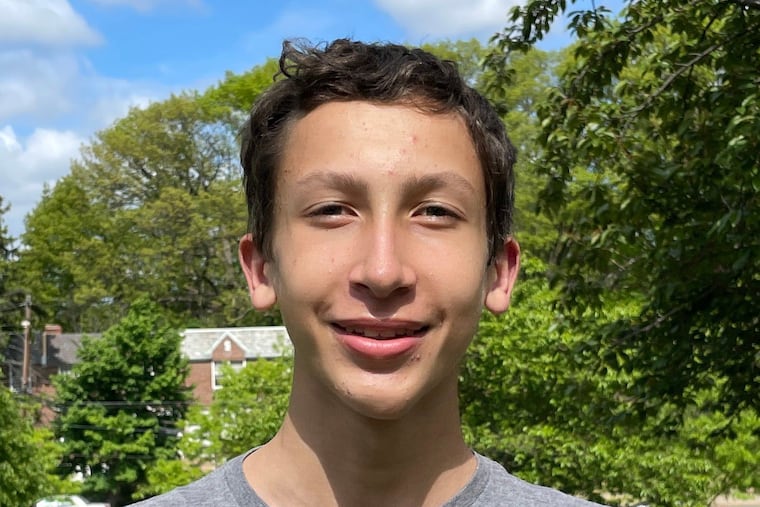My school’s metal detectors make me feel like a criminal
Philadelphia’s decision to expand weapons screenings to middle schoolers will erode trust and make even younger kids feel like criminals, too.

Every morning, I am supposed to walk through a metal detector to go to school and put my book bag through an X-ray machine. It makes me feel like a criminal, and it makes the school feel like a prison.
By searching us every morning, we start the day with an “us vs. them” mentality, and receive a clear message: They do not trust us and consider us armed and dangerous. Schools cannot function as educational environments without trust, and by searching us when we enter the building, they strip that trust systematically, every morning.
Metal detectors create a hostile relationship between schools and students. It’s been bad enough for me to deal with this when I’ve been going through my freshman year in high school. Now, I’m particularly worried that Philadelphia is in the process of expanding the use of metal detectors to middle schools. We must not let a tough-on-crime mentality override concerns around student trust, equity, and privacy.
» READ MORE: Should Philly schools scan middle schoolers for weapons? | Pro/Con
All of these concerns are particularly important in middle school, which are formative years. But when I was in middle school, many of my peers and I did not feel that the School District was particularly open to building trust with us; indeed, only 43% of middle schoolers report that they can frequently talk to teachers about problems.
The district needs to do more to build trust with its middle schoolers, yet it is instituting policies that will only erode it.
Let’s not forget that the use of metal detectors in schools is, and has always been, a racial issue. Nationally, Black students are almost five times more likely to walk through metal detectors at their schools than their white peers. You don’t see metal detectors in the nearby Lower Merion School District, where fewer than 15% of students are Black or Latino. Yet here in Philadelphia, where Black and Latino students comprise nearly 75% of the student body, we are getting scanned all the time.
The policy mandating metal detectors in Philadelphia middle schools is essentially saying that a low-income Black 12-year-old from Overbrook Park should be searched by the police at his school, whereas his white peer in Bala Cynwyd, a few blocks away, can be trusted.
It’s 2022. We should not be expanding the use of racially discriminatory policies.
And let’s not forget that metal detectors don’t work. Metal detector searches are remarkably ineffective at actually detecting weapons and thereby preventing violence, especially when compared with other methods. In New York City schools, only one weapon is found for every 23,034 scans, and the majority of confiscated weapons in New York City schools were found without metal detectors anyway.
“And let’s not forget that metal detectors don’t work.”
It is an open secret among us students that anything can be sneaked past metal detectors with minimal effort. Even the TSA, with far stricter security, fails to keep weapons from slipping through 95% of the time.
Worst of all, when it comes to student concerns around safety, metal detectors might make things worse. Students in schools with metal detectors report feeling significantly less safe than students in schools without them.
To truly reduce violence in and around our schools, we must increase the quality of the mental health and counseling services provided to our students. Today, school police outnumber school counselors in our schools. I have heard of so many students struggling with depression, going to the limited counselors that we have. And that’s just what I’m hearing from my friends at Central and Masterman; kids at other schools may be far worse off. If the School District truly wants violence to decrease, it needs to help students’ state of mind, so they don’t think about bringing a gun to school in the first place.
It is neither effective nor acceptable to search all high school students with metal detectors, and this is even more true when it comes to middle schoolers. We must not leave behind our concerns around equity and privacy to pursue small — if any — gains in student safety and well-being. We cannot allow the School District to further wear away student trust.
We cannot permit the School District to begin searching middle school students, and we must fight to get metal detectors removed from our high schools. This summer, the School District will decide whether to continue searching middle schoolers in the upcoming school year. I implore you to let your voice be heard, and write to our new superintendent, Tony Watlington Sr., and the Board of Education voicing your opposition to these searches.
Andre Geffen is a Philadelphia resident and a freshman at Central High School.